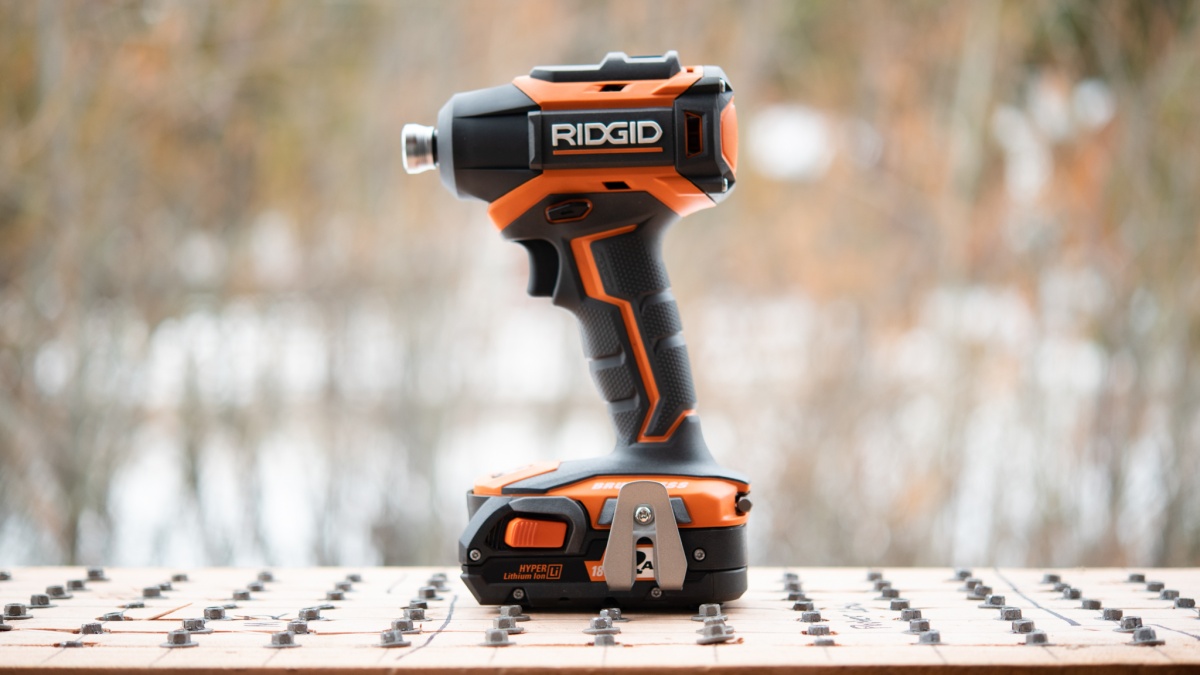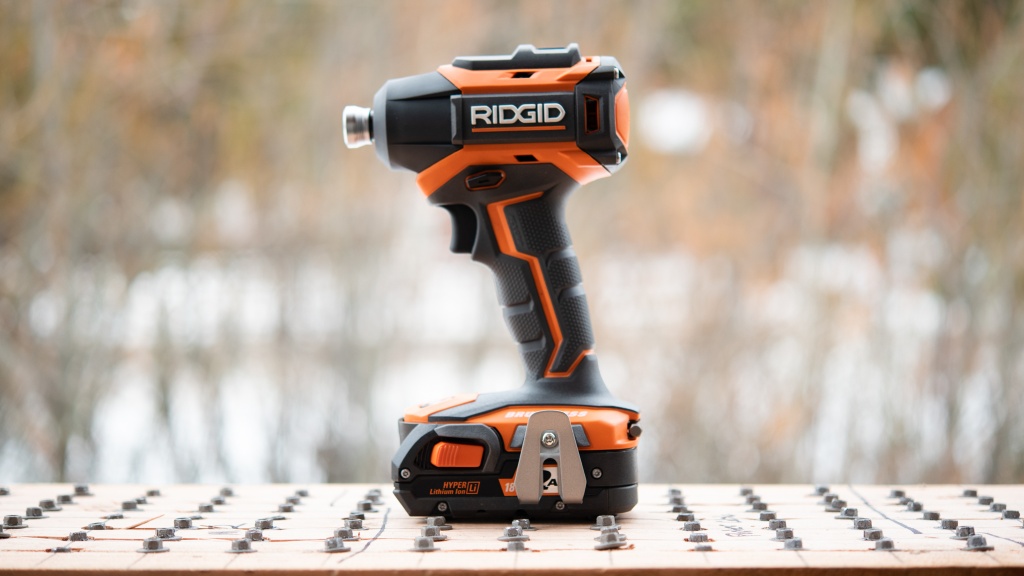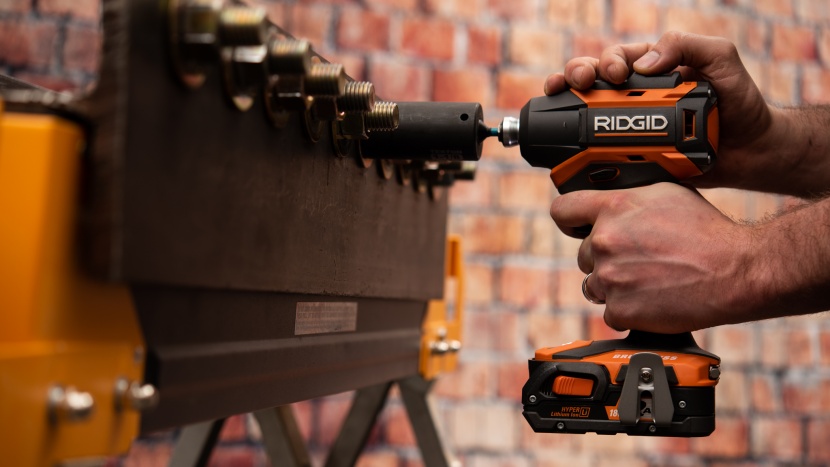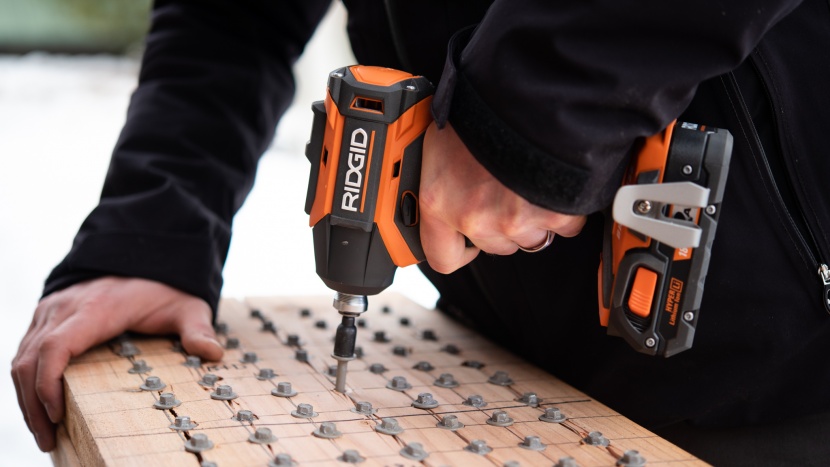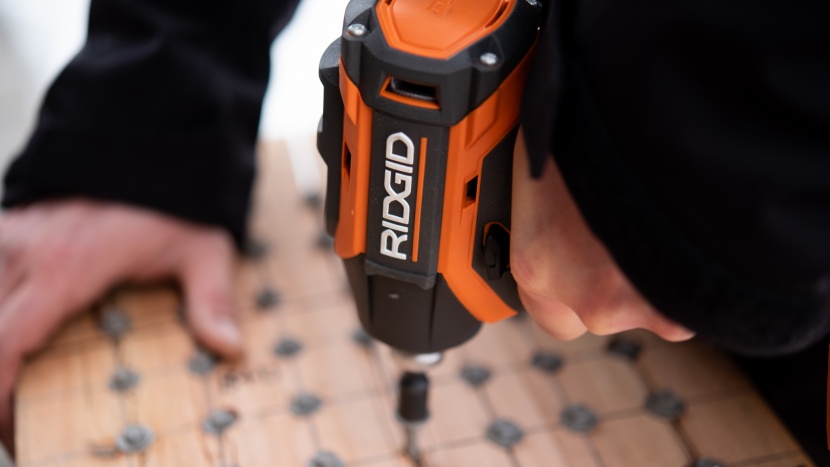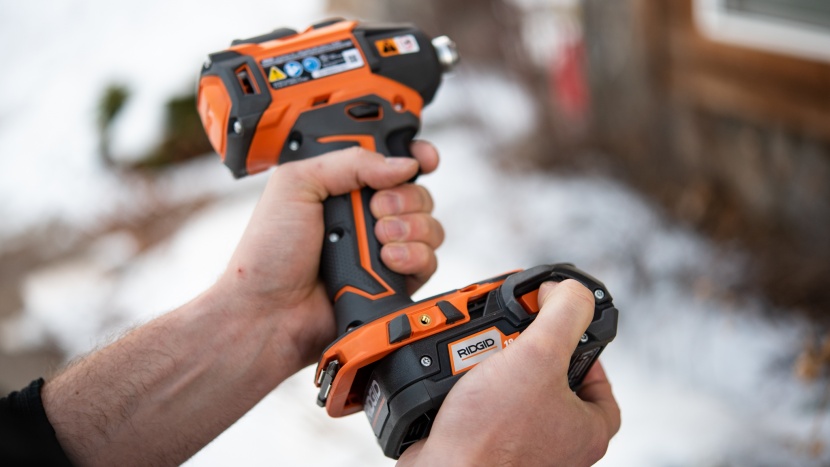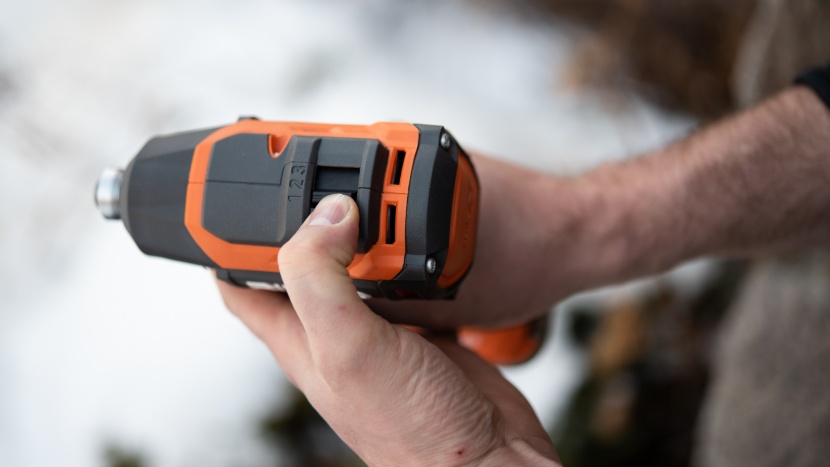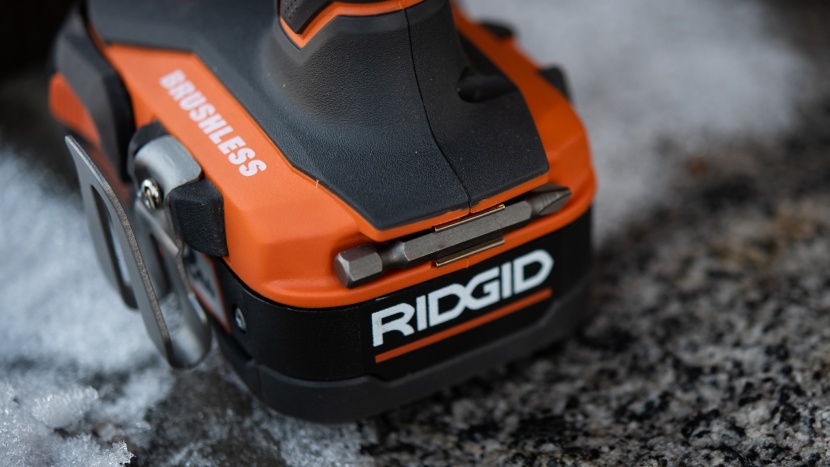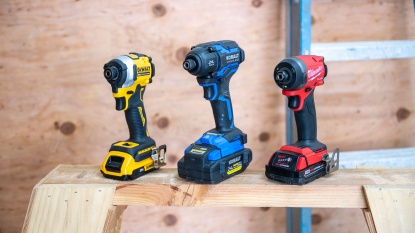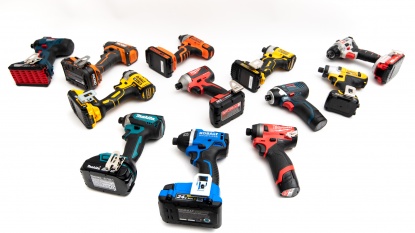
Our Verdict
Our Analysis and Test Results
We think the R86038 is a solid choice for those who already own Ridgid tools or are looking to buy a kit. We'd also recommend this model to professionals who know that they will require a large amount of torque delivered from their driver but also don't mind the noise and will likely have extra batteries around.
Likes
The obvious place where the Ridgid excelled during our exhaustive abuse of these tools was during the torque experiments. We began by tightening several ¾" nuts onto bolts we had welded to an I-beam for 10 seconds and then using a torque wrench to measure just how much twisting force each model was able to deliver. The R86038 was able to crank the nuts down to 300 foot-pounds of energy several trials in a row, which is on par with the highest scoring drivers in our review for this half of the torque test.
For the second part of our torque testing, we used the wrench to crank the nuts down see which models could break them free. It was no challenge to the Ridgid to break nuts tightened down to 300 foot-pounds, and it only took this driver under 2 seconds to do so.
Although the R86038 showed slower speeds than the top models, it still posted quicker times than the majority of the field. When we clocked this driver sinking 3-⅝" ledger screws into a thick stack of plywood we calculated an average fastening time of 6 seconds after 5 trials.
When we switched our testing medium from plywood to a stack of 2x12s the average time the Ridgid took to drive the ledger screws dropped to 3 seconds, which tied several of the highest scoring models for the total score for the speed metric.
We wanted to see how much using a bigger, burlier fastener would affect the speed of each model. To do this we, again, used a stack of 2x12 boards, but this time we drilled 11/32" pilot holes to accommodate ½" x 3" lag bolts, then timed how long it took each driver to tighten them as well as loosen them. When it came to sinking the screw the Ridgid was a bit slower than several models — it took 19 seconds to complete the task. It then took the R86038 9 seconds to fully back the fastener out which was much slower than the best of the best for this experiment.
Much like the speed metric, the Ridgid did fairly well for our battery testing, but was outperformed by the top models. For the battery test we wore the drivers down by sinking 14 ledger screws into the stack of boards, then switched to sinking and removing a larger lag bolt, and then repeated this process over and over again until each battery was completely depleted of any power.
The R86038 was able to finish 3 complete sets of alternating between the two types of fasteners, but on its 4th set it was only able to sink the ledger screws and then died while driving the lag bolt.
Convenience was a fairly strong metric for the R86038 when compared to other models, and we did find some ways in which it stood out.
It's great that the Ridgid has 3 settings for RPM, because with this model's ridiculous torque it wouldn't be much good for finish projects or small jobs if you weren't able to turn it down.
The R86038 has the light located below the handle near the battery which lights up the work area nicely, and a slight squeeze on the trigger activates the light without the actual driver needing to be engaged.
This driver also has a bit holder below the backside of the handle that houses its included phillips bit.
One of our favorite features of this model is that not only does the chuck have a quick insert for bits, inserting a bit cocks the chuck into a position that allows for an easy one-handed spring assisted quick release as well.
Dislikes
Regrettably, the Ridgid lost a few points in the convenience department as well. At 2.4 lbs without the battery, it is one of the heavier impact drivers that we've put on the scale. That may seem insignificant, but if you're going to be using your driver for long periods of time every ounce counts — especially if you'll be going up and down a ladder with your tools or using it above your head.
This model is on the bulkier side of impact drivers that we've tested. From front to back we measured it to be 147mm long. A lot of people that use impact drivers will be using them in tight spaces, so if you're worried about room to work on your job or project it may be wise to go with a more compact model.
One metric for which the Ridgid received a very poor score was noise. Using a sound pressure level meter we measured the decibels that each model produced while driving several ledger screws, and then took an average. Sadly, we calculated the average for the R86038 to be a painful 100 decibels — making it one of the loudest impact drivers in our review. This amount of noise is not only a lot for the user, but you might also be bothering some bystanders or neighbors with a tool this loud as well. And, of course, always check with the manufacturer for the type of hearing protection that they recommend.
Value
The Rigid is what we would call a moderate value as a standalone tool. That said, if you already own this battery and charger or you're looking to purchase a kit that includes this model then it becomes a significantly higher value.
Conclusion
All in all, the Rigid R86038 is a middle of the road impact driver. It threw up a great score for torque, but is somewhat mediocre in several other aspects. Aside from performance it is downright loud.


